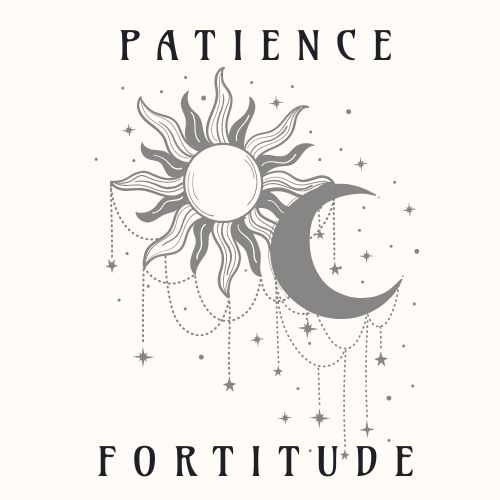There is a lot to unpack in philosopher André Comte-Sponville’s long essay, “The Little Book of Atheist Spirituality.” I have not, in fact, even finished reading it, but I’ll post a review of it when I do. (Spoiler: it’s going to be gushingly positive, highly fangirl-ish review. I love this book.)
But there is a lot to unpack in it, bon mots of brilliant insight that had me (at the bar of my favorite restaurant, no less) hopping up and down with excitement and exclaiming, “Yes! Exactly!” a lot. My bartender was amused.
What really grabbed me was that right out of the gate, Comte-Sponville tackled grief and mourning (this guy knows the way to my heart, for sure).This quote in particular has stayed with me: “Far more real, far more painful and unbearable is the death of loved ones. This is where atheists find themselves the most helpless.”
When people ask me about care-taking, grief, and mourning, they often hedge around the question “what was the worst part?” but it’s obvious that is what they want to know. I think because they often want to prime themselves for the experience, in hopes that being prepared for it will somehow make it easier to live through. It won’t, but that’s beside the point, because my answer generally confuses them: the worst part is the helplessness.
You stand by in horror when you watch someone slowly die, or stand transfixed by shock when informed of a sudden and unexpected death. Then they are dead, and there is nothing you can do. There was nothing you could have done. Nothing you do in the future will change what has happened.
Like an infant child abandoned in the woods, you are profoundly and terrifyingly helpless.
I have written before that I never once entertained ideas of an afterlife – not even on purpose, it just never occurred to me until other people mentioned it (“they’re happier now”; “you’ll see them again someday”…these consolations were mostly awkward for me, and confusing). So it was with a deep, yawning horror that I saw and understood how helpless I was during my parents’ deaths, because there is no consolation to an inevitable and permanent ending that cannot be successfully delayed or derailed or avoided. Death is, after birth, the most permanent human condition.
Ironically, during this time I was deeply involved in the Episcopal Church, mostly at my mother’s (surprise) urgings and my father’s approval. I was a lay minister, even. I prayed often. But it was empty of anything meaningful for me, despite my attempt to “find God” that seemed so important for other people. I was entirely sincere in my participation, but it was a lackluster experience. It gave me no answers, provided no solace, offered no hope. When I did pray, it was mostly for strength that never seemed to come. I was weak and devastated and helpless in the face of deaths I could not circumvent.
Not long after my father’s death (a year and half after my mother’s) I gave up on church and prayer. I would, ten years later, go on another “search for God” that was lot more organized and just as pointless, but in meantime I was dealing with a sense of helplessness that overwhelmed me, with no relief in sight other than depression. Depression is pretty awful, but I will say this: it does an excellent job of numbing your emotions. Oh, the good ones too, no doubt; joy, love, passion, excitement, kindness all get taken down in the same storm as grief, anger and helplessness. But it was the only reprieve I got.
Which is the backdrop for my reading that line from Comte-Sponville’s book. He is talking specifically about atheists like myself who are often sanguine about our own future death. Get a group of atheists together, and the one thing we can agree on is that we all fear dying but not death. I’ll die, that’s fine, that’s how it goes, here’s to hoping it’s not particularly painful. Whatevs.
But the same cannot be said about the death of loved ones, where we are left heartbroken and bereft by the permanent departure of someone who was an important part of our lives. What to do? What to do???
That is the essence of helplessness, I think, that desperate plea “What to do?” We must do something or go crazy, but there is nothing to be done. Religions do perform some service through the application of ritual (prayers, funerals, remembrances), and of course most deists believe in a version of carrying on in some way, even Buddhists (via reincarnation) and Jews (albeit without much fervor).
But not so, for us.
So, we stew in our helplessness. I dug out of it years later and after a nervous breakdown, which I truly don’t recommend. I’m not sure what could have prevented that catastrophe, but I’d like to think there was something. Therapy worked wonders in the end, but only when I was ready for it. There was no book or theory or practice that I ever found to help pull me, a “devout” atheist, out of my pit of bleak helplessness.
I don’t have answers for that conundrum. There is no point to prayer or rituals if you have no underlying faith in the framework they are a part of, which I learned through first-hand experience. Empty gestures just move air around.
I have not finished Comte-Sponville’s book, although a quick glance through proves he is adroit at asking the questions but hesitant with answers, a fine tone for a skeptic to take in my opinion. Perhaps these are things we must all simply power through and the key is not to find solutions but to learn to ask the right questions, each to answer individually on our own.
Which leaves me wondering what my questions would have been, 20 years ago.
